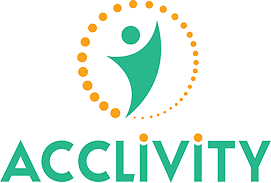In recent years, there has been an increased focus on diversity in higher education.
There are many good reasons for this – diversity can lead to improved outcomes for students, a better understanding and connection with the world around us, and enhanced creativity and productivity.
However, despite the benefits of diversity, many institutions of higher learning are still not doing enough to promote it.
This blog post will explore why diversity is important in higher education and what can be done to improve the situation. Thanks for reading!
Is BIPOC An Issue in Higher Education?
BIPOC stands for Black, Indigenous, and People of Color.
Diversity in higher education is a major issue that needs to be addressed and encouraged. BIPOC students face many obstacles when pursuing higher education, creating an unequal playing field compared to their white peers. BIPOC communities are systematically underrepresented, meaning that their rights and privileges are not recognized in the traditional college setting. As a result, BIPOC students often face more financial and social burdens when trying to access higher education. By acknowledging these inequalities and incorporating more diverse perspectives into our educational settings, we will create opportunities for BIPOC students to succeed and thrive.
Challenges faced by students from minority groups in college
For many students from minority backgrounds, college can be a difficult and challenging experience. From financial difficulties and cultural differences to language barriers and discrimination, students from marginalized groups often face overwhelming obstacles when arriving on campus. This can lead to feelings of alienation, isolation, and disenfranchisement which can further interfere with graduates’ academic and postgraduation success. It is clear that in order for all students to thrive, universities must work to implement policies that provide equitable opportunities for minority students such as need-based scholarships, student support systems, inclusion awareness education initiatives, and other measures aimed at increasing diversity in higher education.
Let’s improve diversity on college campuses, such as increasing financial aid and hiring more diverse faculty
Improving diversity on college campuses is an important issue that should be addressed. Institutions should look for ways to better support and include underrepresented populations. One tactic to pursue is offering increased financial aid opportunities, especially to individuals from low-income backgrounds. Not only would this help empower those with less access to higher education, but it would also create a more diverse learning environment on campus. Furthermore, colleges and universities could take steps towards having a more diverse faculty including recruiting professors of color, broadening search committees, and creating and strengthening campus support systems for minority students and instructors. Dedicating resources to making campuses more inclusive and equitable can have benefits not just for the respective institutions, but also for students who gain invaluable perspectives through interacting with peers, faculty, and staff from all walks of life.
The importance of diversity in higher education and its benefits for all students
The importance of fostering diversity in higher education cannot be understated. A diverse learning environment is essential to prepare students for the realities and opportunities of the modern world. In a diverse educational setting, each student has something unique to contribute that contributes to a more thorough understanding of the course material and fosters growth among peers. Furthermore, by collaborating with others from different backgrounds, students gain valuable skills and experience in effective communication, bridge-building, and critical analysis which will serve them well long after graduation. As such, it is evident that reaffirming commitment to diversity in higher education promotes success for all students.
In conclusion, diversity in higher education is an integral piece of the collegiate experience. It is important to recognize the unique challenges faced by minority groups on college campuses and take steps to create a welcoming environment for all students. There are various methods that can be employed to improve diversity on college campuses, such as increasing financial aid and actively hiring faculty from diverse backgrounds. A greater representation of minority groups in higher learning institutes can lead to more successful outcomes for all students, leading to a better and more informed society as a whole. Therefore, it is essential that administrators of colleges and universities continue to strive for inclusivity in their student body.
Rising to leadership roles is challenging, and it takes a good mentor to help people get there. Successful career coaching offers help in breaking down these barriers to success in academia. For more information or to inquire about career coaching, schedule an appointment with Dr. Loren Hill today.

